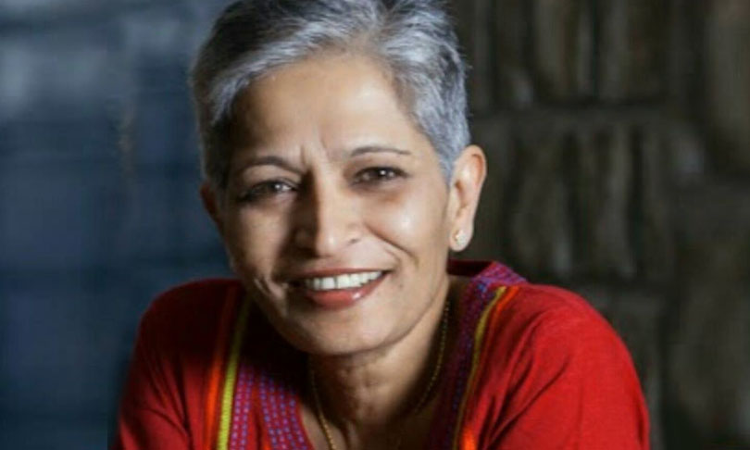Introduction
The assassination of journalist Gauri Lankesh in 2017 sent shockwaves through India and the global media community. Known for her outspoken stance against right-wing extremism, Gauri’s murder was widely seen as an attack on free speech. Recently, several of the accused in the case were granted bail, sparking outrage, especially as images surfaced showing them receiving a “saffron welcome” upon their release. This incident has reignited debates around judicial leniency, the influence of extremism, and the state of free speech in India.
The Gauri Lankesh Assassination: A Brief Overview
Gauri Lankesh, a fearless journalist and critic of right-wing ideologies, was shot dead outside her home in Bengaluru on September 5, 2017. The killing was seen as part of a larger pattern of attacks on intellectuals and activists who challenge majoritarian narratives. Lankesh’s death garnered widespread condemnation from both domestic and international observers, drawing attention to the shrinking space for dissent in India.
A Special Investigation Team (SIT) was formed to probe the case, and over time, several individuals with links to right-wing organizations were arrested. However, the legal proceedings have been slow, and the recent decision to grant bail to some of the accused has caused renewed concern.
Granting Bail: Legal Justifications or Systemic Failures?
The court’s decision to grant bail to the accused raises several questions. Supporters of the move argue that in India’s legal system, bail is a right, not a privilege, and that the accused cannot be kept in custody indefinitely without trial. However, critics point to the slow progress in the case and argue that releasing the accused before the trial is concluded undermines justice for Lankesh and others targeted by extremist groups.
In cases of political or religious violence, the legal system faces immense pressure, often swayed by powerful factions. The granting of bail, especially in high-profile cases like Gauri Lankesh’s, can reflect deeper issues with how justice is served in politically sensitive environments.
The Saffron Welcome: A Disturbing Trend
What has disturbed many people is not just the granting of bail, but the manner in which the accused were welcomed upon their release. Photos and videos of the accused being garlanded and hailed as heroes surfaced, adding fuel to the fire. Such celebrations, often organized by extremist groups, normalize and glorify violence in the name of ideology. The “saffron welcome” — a reference to the color associated with right-wing Hindu nationalism — is not a new phenomenon in India. Similar celebrations have been observed in other cases where individuals accused of violence against minorities or dissenters have been released on bail.
This type of public reception not only diminishes the seriousness of the crime but also sends a message to others that acts of violence can be justified and even celebrated if aligned with a particular ideology.
Impact on Freedom of Speech and Journalism in India
The release of Lankesh’s accused killers and their subsequent glorification points to a broader problem in India — the shrinking space for dissent and independent journalism. Lankesh’s murder was seen as part of a disturbing trend where journalists, activists, and intellectuals who criticize the government or dominant ideologies are increasingly targeted. The “saffron welcome” given to her alleged killers only deepens concerns about the safety of those who dare to speak out.
Furthermore, the slow progress in the trial has led to questions about how serious the Indian state is about protecting its critics. If justice for Lankesh remains elusive, it could embolden others to carry out similar acts of violence, further stifling free speech.
The Fight for Justice Continues
As the legal battle for justice in Gauri Lankesh’s murder case drags on, the recent developments have left many disillusioned. The granting of bail and the saffron welcome of the accused highlight the challenges that India faces in maintaining the rule of law and protecting dissent. However, the public outrage also serves as a reminder that many are still committed to upholding the values that Gauri Lankesh stood for — freedom of speech, secularism, and social justice.









